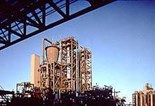Dow/Exxon/Univation Metallocene-Patent Settlement Brings Some Order to Polymer Markets

Exxon Corp. (Houston), Dow Chemical Co. (Midland, MI) and Univation Technologies (Houston) have settled their tangled web of metallocene patent disputes. The agreement lays to rest much of the uncertainty that confronts companies that want to license processes based on metallocene catalysts.
"Extensive litigation has placed a cloud over this breakthrough technology, says VP Edwin Gambrell, who heads Dow's Insite metallocene business. "With the cloud removed from Dow's and Exxon's metallocene-related patents, the full benefit of this technology can immediately impact the marketplace."

"Exxon believes this settlement agreement will be good for customers of metallocene technology-based products by reducing uncertainty and encouraging them to expand commercialization," says Exxon polymers SVP James Harris.
Metallocenes are single-site catalysts that provide greater control over molecular chain length and structure. As a result, they impart superior uniformity and processability to such polyolefins as polyethylene and polypropylene. Metallocene-based polymers are also stronger, purer and clearer. As a class, they are the fastest growing of all commodity chemicals.
Applications for metallocene-based polymers range from durable polypropylene auto parts and molded containers to films used in shopping bags, garbage bags, heavy-duty shipping sacks, flexible food packaging and diapers.
Dow, Exxon, and Univation (an Exxon-Union Carbide Corp. technology licensing joint-venture) have not detailed their final arrangement. In a published statement, however, they say the pact "includes alternatives to litigation for resolution of future patent disputes, and the licensing of certain patent rights. Exxon, Dow, and Univation can each extend these rights to their customers." This sounds like crosslicensing, a practice widespread among oil companies but less common in the chemical industry.

The confidential agreement settles litigation and other disputes between Exxon and Dow in the United States, Germany, Holland and the United Kingdom, and between Univation and Dow in the United States. Exxon and Univation have more than 200 patents that cover metallocene catalysts and their production and use. A search showed at least 72 patents assigned to Dow that contain the word "metallocene."
Exxon affiliates covered by the settlement agreement include Dex-Plastomers, an Exxon-DSM joint-venture in Europe, and Univation Technologies. Univation licenses Union Carbide's Unipol gas-phase polyethylene process, Exxon's Exxpol polyethylene gas-phase and slurry metallocene technology, and Exxon's Super Condensed Mode Technology (SCM-T), a patented low-cost process to expand Unipol plant capacity by 60% to more than 200%. Its Exxpol licensees include DSM and Brazil's Rio Polimeros.
This is not the first time patents have played a pivotal role in the commercialization of metallocene technology. A driving force behind the formation of Univation was the desire of Exxon and Union Carbide to resolve existing and future legal disputes. While Exxon licenses Exxpol metallocene technology for polyethylene production through Univation, it retains its marketing rights for Exxpol use in polypropylene and elastomer production.
Last August, a jury in the United States District Court in Houston, TX, ruled that Mobil Oil had infringed on a key Exxon metallocene catalyst patent (US 5,324,800). It upheld the validity of the patent and ordered Mobil to pay Exxon $171 million. Earlier in 1998, Japan granted Exxon a patent covering similar substituted metallocene compounds activated by alumoxanes over the opposition of several major Japanese companies. According to Union Carbide, the '800' patent is "the world's most widely cited patent in the metallocene literature."
This past April, the Court of Appeal of England found that BP Chemicals' high-productivity polyethylene process infringes on Union Carbide's SCM-T process. BP installed the process at its Grangemouth, Scotland, plant in 1996. The court also found that the process BP had used before 1996 also infringed on Union Carbide's patent.
Exxon uses Exxpol technology to make Exceed polyethylene, Exact plastomers (olefinic elastomers), and Achieve polypropylene. Dow Chemical uses its Insite technology to produce Elite polyethylene, Affinity polyolefin plastomers, and Index olefinic polymers. Through the DuPont Dow Elastomers joint venture, it uses the Insite process to make Engage polyolefin elastomers and Nordel hydrocarbon rubbers. Dow controls access to its Insite technology.
For more information: Univation Technologies, 5555 San Felipe St., Houston, TX 77056. Phone: 713-892-3700. Fax: 713-892-3734.
Or: Dow Chemical Co., 2030 Dow Center, Midland, MI 48674. Phone: 517-636-1000. Fax: 517-636-1830.
By Alan S. Brown
